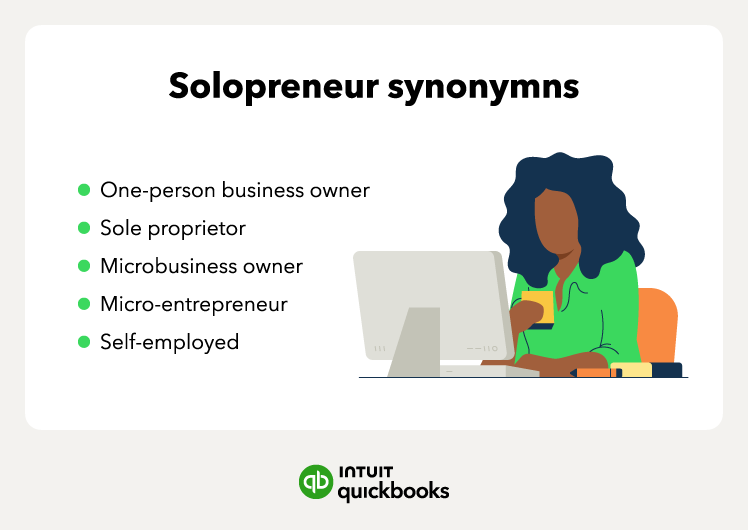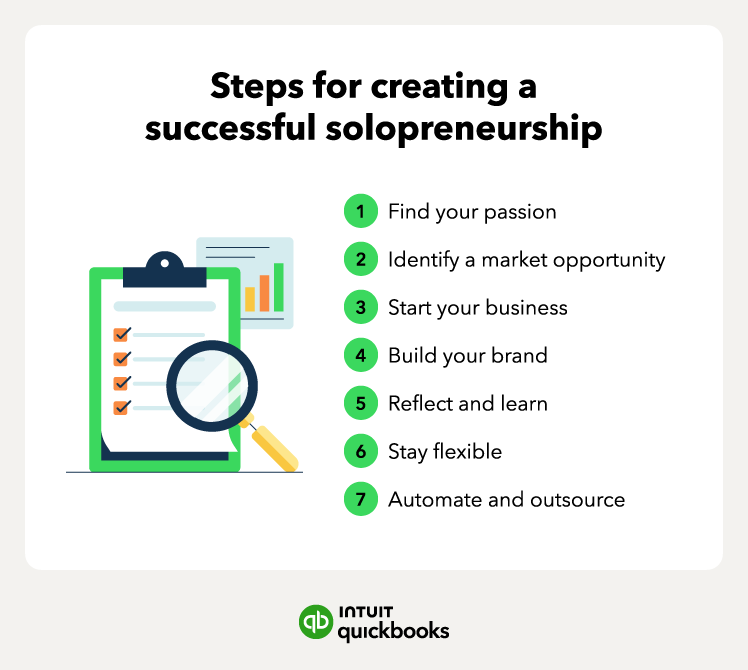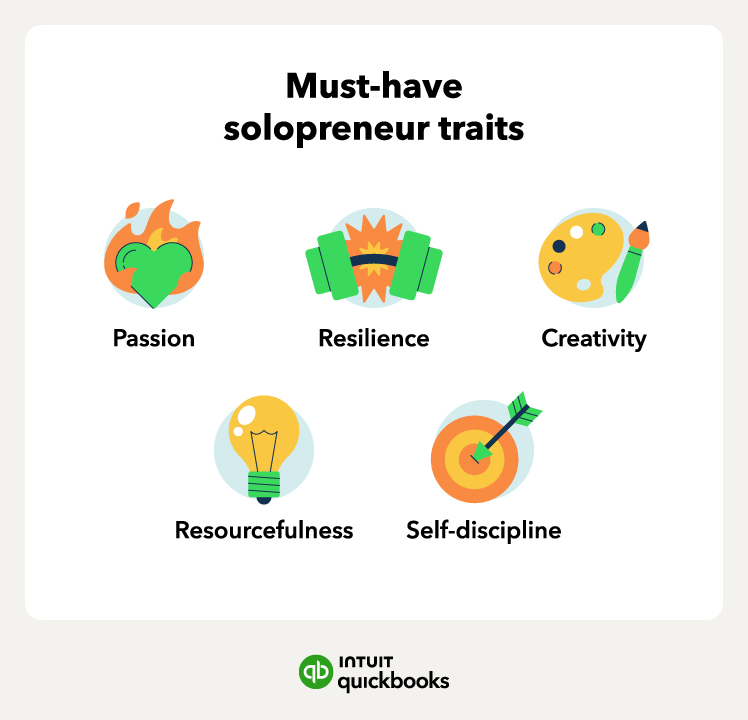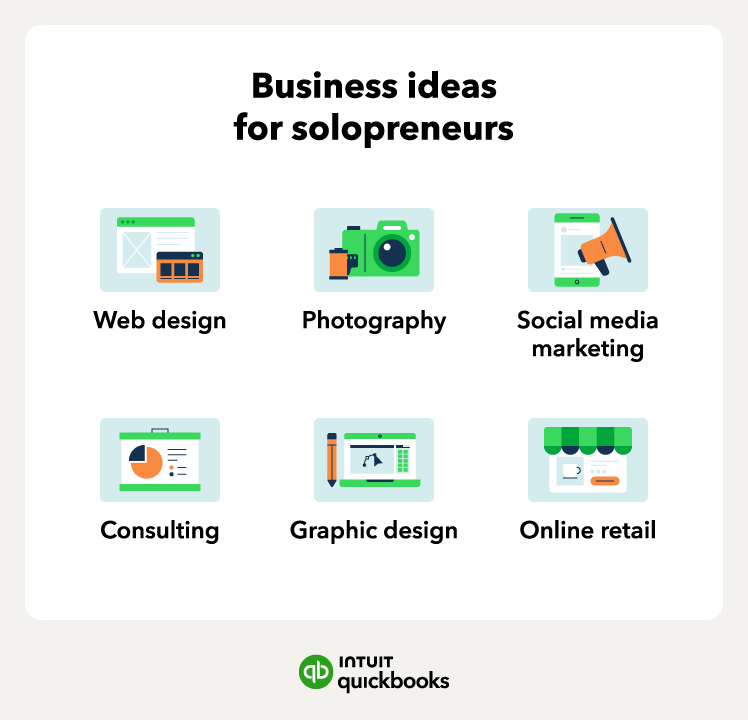Successful solopreneurs tend to have a few similar traits, including strong time-management skills and resilience. They also might pursue these seven steps to grow their business.
1. Identify your passion
The first step to becoming a successful solopreneur is to figure out your passion. Generally, this should tie into things you are good at so that your interests and skills align.
Here are some tips for figuring out if you can turn your passion into a business:
- List all your talents and skills: What do you think you’re good at? What are the things that other people tell you that you’re good at? Include the things you enjoy learning about as well.
- Consider your values: Think about the things that are important to you. In what ways do you hope to impact your industry?
- Look at your hobbies: What are your interests and hobbies? Take a look at the things you enjoy doing in your free time.
Taking inventory of these things—your talents, skills, values, and hobbies—is a great way to figure out what you’re passionate about.
2. Find a market opportunity
Do you have skills that are in demand in your area, such as photography? Or will you need to use your skills to create a new kind of business? Look for trends surrounding your passion or industry, but be creative and think outside the box. Think about the problems that people are facing and the needs that aren’t being met.
Once you have an idea in mind, research the competition. Look for ways you’ll be able to differentiate yourself. Talk to competitors, potential customers, and business leaders in that market. Don’t forget to network with entrepreneurs and other solopreneurs.
3. Start your business
There are a few ways to set up your business as a solopreneur. You can run your business as a sole proprietorship, which is usually the simplest option. However, if you’re looking for liability protection or tax flexibility, you can opt for a single-member LLC.
Then, you can request an employer identification number (EIN) or use your Social Security number to open a business bank account.
Like larger businesses, many solopreneurs also create a business name and logo. Some solopreneurs may opt to simply use their name. For example, if you’re a web designer, it might make sense to operate under your own name for your business.
4. Build your brand
Now that you have your idea and business plan, it’s time to build your brand. The biggest part of brand building is thinking of ways to attract customers. An effective marketing strategy will rely on various online channels—including websites, social media, and email.
However, as a solopreneur, it’s also important to remember that you are your brand. How you present yourself and the experience you provide to clients will factor into your branding.

















